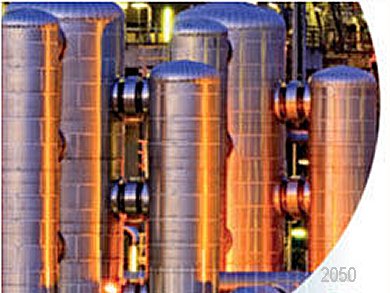In their technology roadmap: Energy and Greenhouse-Gas (GHG) Reductions in the Chemical Industry via Catalytic Processes, the International Energy Agency (IEA), International Council of Chemical Associations (ICCA), and Society for Chemical Engineering and Biotechnology (DECHEMA) describe how industry, policy makers, investors, and academic research institutions can contribute to fully make use of the potential of catalysis worldwide.
According to the report, global energy consumption can be reduced by 13 exajoules (EJ) by 2050 through continuous improvement of processes, and technological advances. This corresponds approximately to the annual primary energy consumption in Germany. Simultaneously, the production of greenhouse gases could be reduced by 1 gigatonne (GT) of CO2 equivalent (CO2-eq) per year by 2050 versus a business-as-usual scenario.
The roadmap, e.g., recommends that policymakers should help create a favourable environment that encourages additional energy efficiency investments, removes barriers for new investments, and creates a long-term framework that encourages investment in, e.g., R&D. Industry can identify top catalyst/process-related opportunities, accelerate R&D and capital investments that improve energy efficiency, and promote further focused collaboration with academia and research institutions on these industrially relevant challenges.
The roadmap is a living document that will be updated regularly to reflect advances and identify necessary adjustments.
- International Energy Agency (IEA),
- International Council of Chemical Associations (ICCA),
- DECHEMA Gesellschaft für Chemische Technik und Biotechnologie e.V. (Society for Chemical Engineering and Biotechnology), Frankfurt, Germany
Download:
- Technology Roadmap: Energy and GHG Reductions in the Chemical Industry via Catalytic Processes (pdf, 2.4 MB)
- Foldout (pdf, 1.8 MB)
- Annexes (pdf, 0.9 MB)




